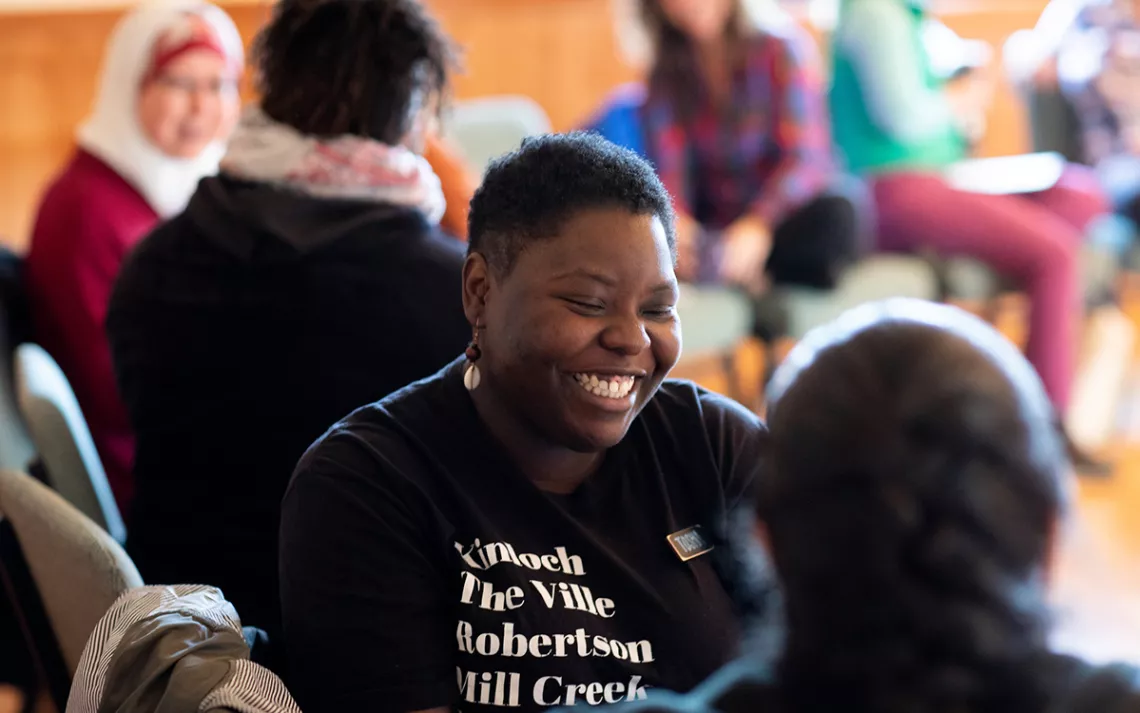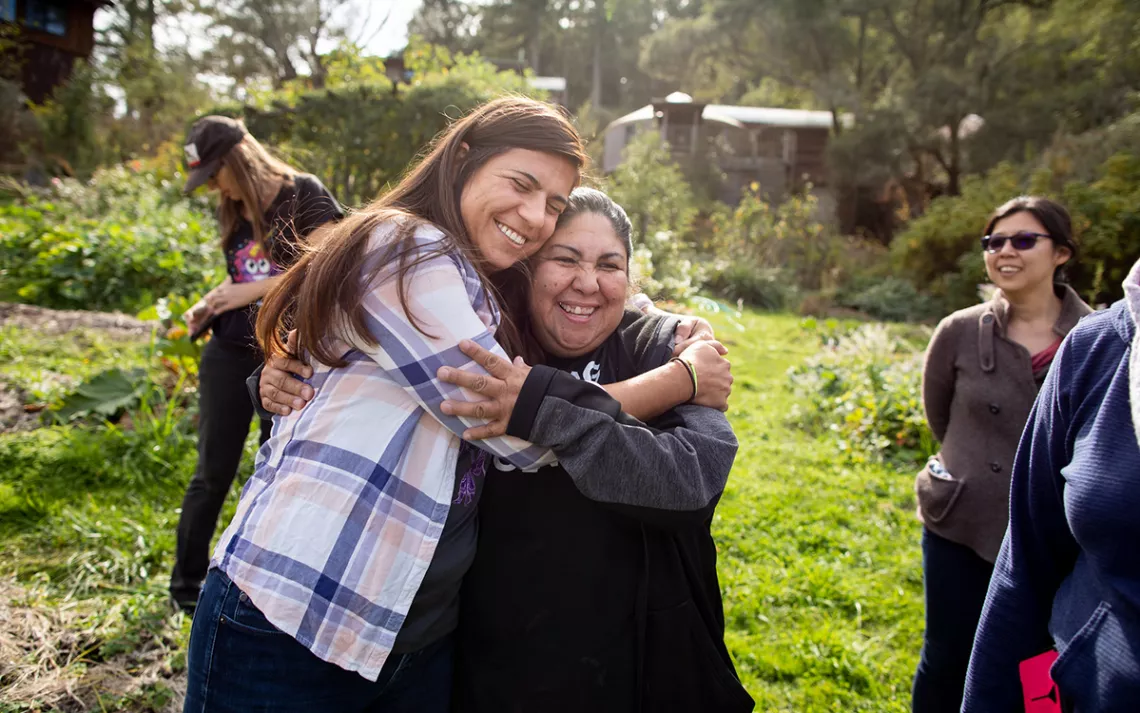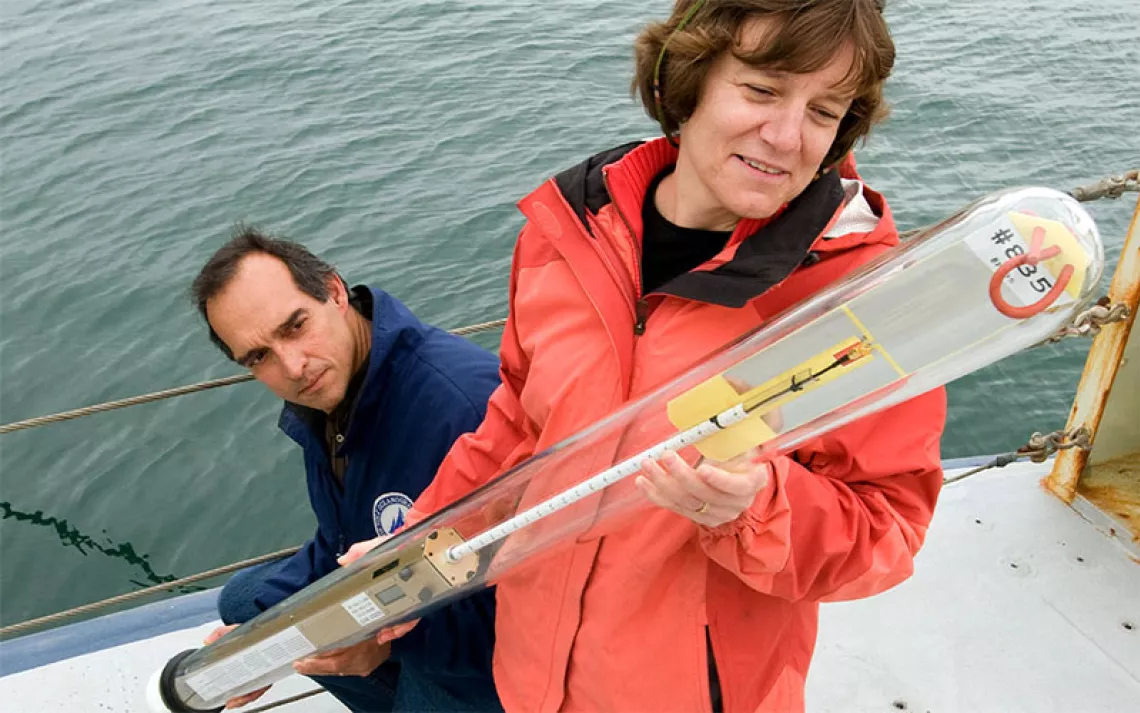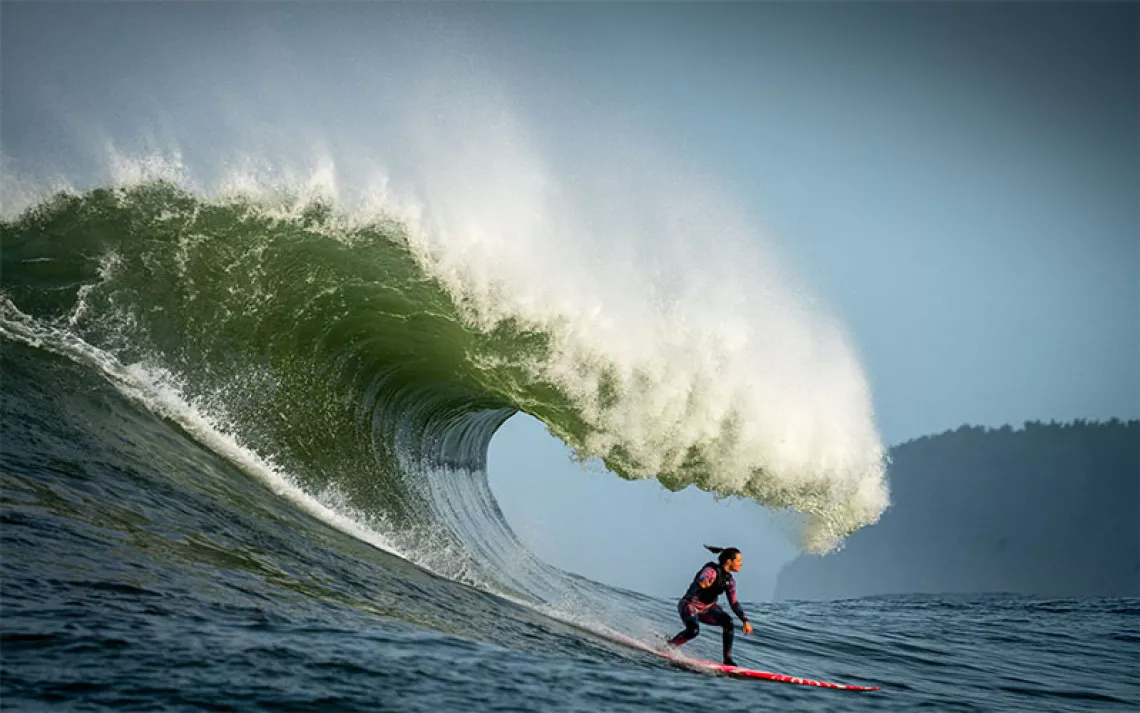The US Grassroots Accelerator Offers a Chance for Radical Collaboration
A unique program supports women environmental leaders

Food justice organizer Tosha Phonix | Photos by Paige Green
Beth Roach found out about the US Grassroots Accelerator for Women Environmental Leaders program through Twitter—a fellow activist had tagged her in the call for applications. At the time, she was an organizer with the climate advocacy group Mothers Out Front in Richmond, Virginia. For the past several years, Roach, who is a member of the Nottoway tribe, had also been working on a side project with her partner and some friends, which they called the Alliance of Native Seed Keepers. The organization strives to revitalize native seed varieties—for example, Seneca Pink Lady corn and Tutelo Strawberry corn—that were nearly wiped out by colonization. With the Grassroots Accelerator program, Roach saw an opportunity to scale up the project. She applied and was accepted.
Co-designed by the Sierra Club’s Gender, Equity, and Environment program and Women’s Earth Alliance (WEA), the Accelerator offers the chance for women-identified environmental leaders around the country to strengthen their individual initiatives through collaborative learning. Between August and December, Roach worked her way through a four-month online curriculum in tandem with 19 other participants, including Dolores Belmares, an activist with a long track record of combating air and water pollution in south Texas; Mishka Banuri, a youth climate activist from Salt Lake City; Sabina Perez, a human rights activist and politician in Guam; and Tosha Phonix, a food justice organizer with the Missouri Coalition for the Environment. At the end of the program, the group gathered for a weeklong retreat. Now in its second year, the Accelerator is accepting applications for the next cohort of leaders until June 8.
Why is the program geared toward women?
Female-identified environmental leaders are chronically under-supported. According to a 2017 report in Forbes, only 0.2 percent of philanthropic funds are devoted to women-led environmental solutions. “This cultural and systemic under-investment in women on the front lines stymies their efforts to scale up successful solutions to the global level where they are desperately needed,” Sierra Club’s Courtney Bourgoin wrote in an article for Earth Island Journal. The Accelerator aims to help close this gap.

Beth Roach and Indigenous activist Corrina Gould, who was also part of the 2019 cohort.
According to WEA co-director Melinda Kramer, the Accelerator provides a framework for participants to examine every angle of their initiative—resource mobilization, advocacy strategies, long-term viability—and helps them build a plan to grow. Such organizational nuts and bolts are crucial but often overlooked when resources are stretched thin.
“Some of the things that came out of [the Accelerator] are so simple,” Roach says. “Like headshots, like a two-minute video. I’ve played that so many times at presentations.”
“Many of the leaders who we work with are under-represented and unseen in their efforts,” Kramer says. “Often, they are on the verge of burnout. The program is not just about creating more work; it’s about unlocking efficiencies and ways to be as resourceful and strategic as possible. Along the way, they build a network of leaders who they can work alongside.”
At 18, Magaly Santos was the youngest participant of the 2019 cohort. In her hometown of Gonzalez, California, she works to educate farmworkers and other community members about the risks of pesticide exposure. The Accelerator enabled her to design a training program for environmental advocacy, which she launched in January at her high school.
“It's great when you have an idea, but how do you get there? What are your goals? The Accelerator was that process for me,” Santos says. The program also exposed Santos to a much broader context in which to understand her own advocacy. As she got to know women working in conservation, climate justice, renewable energy, food systems, and more, she noticed commonalities.
“Their passion projects might have been different, but we were going through similar things like language barriers, governments not wanting to listen, corporations not wanting to listen,” Santos says, “and it was just like this sisterhood that we all created.”
Participating in the Accelerator helped Roach to ramp up the Alliance of Native Seed Keepers’ online seed store (they sell commercially available varieties while distributing ceremonial, medicinal, and rare seeds for free). And she and her partner decided to buy a parcel of land to farm. The program has helped her in other ways as well. “It was really neat to stand in front of the world and say, ‘This is what I'm doing. This is who I am.’ For me, it's been a long journey of integrating my professional and personal life. That's what this has done.”
Of course, no one could have anticipated in December that a pandemic would soon sweep across the globe. “One week we were on a group chat with our friends and growers just talking about what endangered seeds we could grow,” Roach says, “and the next week, the conversation immediately shifted to ‘We have to grow more food.’” The alliance was soon sending seed packets to tribal communities all over the country. “Every time we send a seed out, we send so much love with it. Truly, what is more hopeful than a seed that gets planted in the dark and has to fight its way out? But when it does, it brings such beauty and medicine and healing to us all.”
With some adjustments, the 2020 US Grassroots Accelerator, for which Roach is now a mentor, is also moving forward and planting seeds. “In this moment, when a lot of people are feeling isolated, what we really need is radical collaboration,” Kramer says. “We need to be looking at absolutely every way that we can listen to each other, learn from each other. That’s always been the way that we've had breakthroughs in the past.”
To find out more about the US Grassroots Accelerator for Women Environmental Leaders, click here.
 The Magazine of The Sierra Club
The Magazine of The Sierra Club



